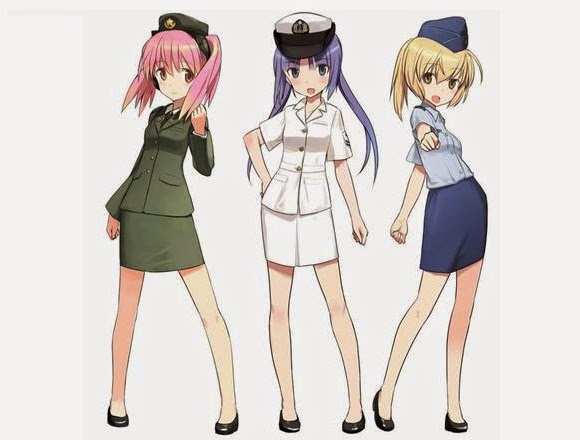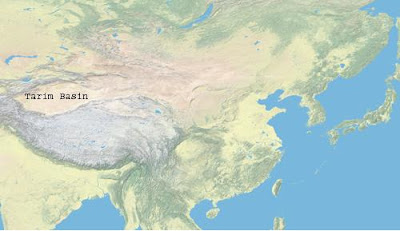North Korea’s Pivot to Russia
North Korea’s Pivot to Russia
By John Grisafi
Throughout the past year, there has been a continuous trend
in North Korea’s foreign policy: an increasingly amicable relationship between
the Democratic People’s Republic of Korea (North Korea) and the Russian
Federation. Numerous developments show that Moscow is fast becoming Pyongyang’s
new preferred foreign benefactor with improvements in their diplomatic, political
and economic relationships. This constitutes a significant shift from the past
two decades, in which China has been Pyongyang’s only strong supporter.
Close relations between Pyongyang and Moscow are certainly
nothing new, with the Soviet Union being the original benefactor of North Korea
at the time of its founding in the late 1940s and continuing through the Cold
War. With the end of the Cold War and the dissolution of the Soviet Union in
1991, however, Russian support for North Korea dwindled. This was a result of
lack of both means – especially economic – and strategic necessity on the part
of Russia in the 1990s, which was more concerned with rebuilding its own
economy. Consequently, the People’s Republic of China became the only large
power supporting North Korea, giving Beijing greater influence both in
Pyongyang and with North Korea’s enemies when they sought to talk with
Pyongyang.
Recently, though, this situation is changing due to an
increasing desire and ability by both Pyongyang and Moscow to renew their
relationship. Having strengthened its economy, especially through petroleum
sales, Russia is now stronger economically. Additionally, under the leadership
of Vladimir Putin, Russia’s foreign policy once again puts in an adversarial
relationship with the West – adversaries shared by North Korea. Pyongyang,
meanwhile, has increasingly sought to diversify its sources of foreign support
away from sole reliance upon China, with Russia being the most desirable likely
candidate.
Andrei Lankov, professor of Korean Studies at Kookmin
University in Seoul, South Korea, explained in a recent
editorial that Pyongyang is looking for a return to the Russo-North Korean
relationship that existed during the Cold War but was skeptical this will play
out as Pyongyang hopes:
“At present, the young
marshal has pinned his hopes on Russia - currently itself on a collision course
with the West. North Korean leaders obviously believe that Russia under
Vladimir Putin will behave like the Soviet Union once did and shower North
Korea with aid grants as a reward for Pyongyang's militant anti-Americanism.
Such hopes are misplaced, but it will take some time before Pyongyang's
decision-makers realize the sad truth.”
During 2014, the DPRK and Russia have made numerous
agreements and transactions which show a continuing increase in economic ties. In
April Pyongyang and Moscow signed
a trade protocol with the aim of increasing annual bilateral trade to $1
billion by 2020, announcing that all bilateral trade will be conducted in Rubles
(the Russian currency), and making plans for Russian investment in the Kaesong
Industrial Complex, the joint economic venture between North and South Korea. Russia
also wrote
off 90 percent of North Korea’s $10 billion debt to Russia leftover from
the Soviet era. The remainder of the debt, equal to $1.09 billion, is to be
paid off in installments every six months and will be spent on mutually
beneficial projects in the North, including a natural gas pipeline connecting
Russia with South Korea via the North. In June, the two countries signed
an agreement to reduce barriers for Russian investment into projects in the
DPRK, including refurbishing the East Pyongyang thermal power plant and a joint
DPRK-Russian project
to upgrade North Korea’s railways. This all shows the North Korea is
increasingly looking to Moscow as a source of financial and economic support
once again.
In addition to economic ties, Pyongyang and Moscow are
stepping up their cooperation in general diplomacy and politics. Late 2014 saw
visits to Russia by North Korean Foreign Minister Ri
Su Yong in September, and Minister of the People’s Armed Forces Hyon
Yong Chol followed by Party Secretary Choe
Ryong Hae in November. In December, Russian President Vladimir Putin even extended
an invitation for North Korean leader Kim Jong Un to visit Russia himself
next year. If Kim does visit Russia, it would be his first trip outside North
Korea since becoming the country’s leader. Russia and North Korea have also
been giving mutual support on the international political stage. Russia has been critical of attempts in
the United Nations to refer North Korea and its leader, Kim Jong Un, to the
International Criminal Court for allegations of human rights violations. Pyongyang,
meanwhile, has
been vocal in standing by Russia regarding the situation in Ukraine.
North Korea’s pivot to Russia does not simply constitute an improvement
in Russo-DPRK relations, though. The past few years have also seen an ever
decreasing reliance by Pyongyang on Beijing, hence making the increasing
reliance on Russia somewhat of a shift away from too much dependence on China.
Throughout the past three years, the time in which Kim Jong Un has ruled North
Korea, China has been much less supportive of North Korea than it was in the
past. At the same time, China’s relationship with South Korea has improved.
Chinese President Xi Jinping made his first visit to a foreign country not to
North Korea, but to South Korea. This is a significant change from the
precedent of other recent Chinese leaders.
Additionally, China and South Korea just
recently
agreed to sign a free trade agreement. Amidst China’s improving relations
with Seoul, North Korea has itself become noticeably colder toward China.
Amongst the reasons for the purge of Jang Song Taek and his associates in
December 2013 was a
perception that he was too close to China. More recently, North Korean
officials visiting Russia chose to communicate a willingness to resume
Six-Party Talks through Moscow, rather than through Beijing as had previously
been the norm. Earlier, in October, Pyongyang chose
to publicly mark the 66th anniversary of Russo-North Korean relations,
despite making no special mention of the 65th anniversary of Sino-North Korean
relations that same month. Finally, Pyongyang declined
to invite a Chinese delegation to ceremonies commemorating the third
anniversary of the death of Kim Jong Il on December 17.
All of these developments show that North Korea is
determined to rekindle its relationship with Russia in the hopes of restoring
something resembling the strong Soviet support for Pyongyang during the Cold
War. This has less to do with any special affinity or even shared ideology
between the two countries and peoples than with geopolitical
necessity. Russia is looking to both expand its economic frontiers and
influence, including into East Asia, while at the same time looking for new
ways to support its increasingly adversarial relationship with western powers
such as the United States. Pyongyang, meanwhile, seeks to diversify its sources
of strong foreign support and free itself from being overly reliant on China,
though it is unlikely to ever dump China as an ally, as that would put it in
same predicament with Russia.


awesome post thanks.funny happy new year 2015
ReplyDelete